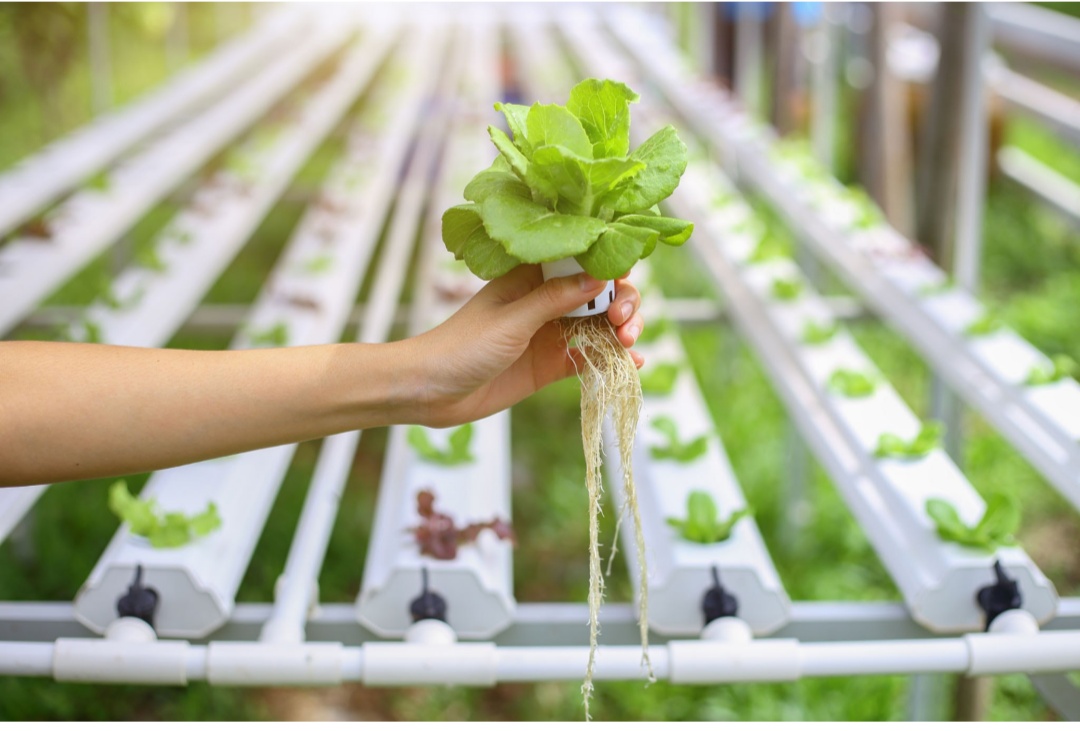Hydroponics is the technique of growing plants using a water-based nutrient solution rather than soil, and can include an growing media, such as vermiculite, coconut coir, or perlite. Hydroponic production systems are used by small farmers, hobbyists, and commercial enterprises.
When Compared To Traditional Soil-Grown Crop Production, The Benefits Of Hydroponics Includes: Up to 90% more efficient use of water. Production increases 3 to 10 times in the same amount of space. Many crops can be produced twice as fast in a well-managed hydroponic system
How does hydroponics work?
Hydroponic systems work by allowing minute control over environmental conditions like temperature and pH balance and maximized exposure to nutrients and water. Hydroponics operates under a very simple principle: provide plants exactly what they need when they need it
Advantages:
Less water consumption
Higher plant density
Plants can grow anywhere
An extended growing season
Improved growth and yield
Disadvantages:
Expensive to set up. Compared to a traditional garden, a hydroponics system is more expensive to acquire and build. …
Vulnerable to power outages. …
Requires constant monitoring and maintenance. …
Waterborne diseases. …
Problems affect plants quicker.

